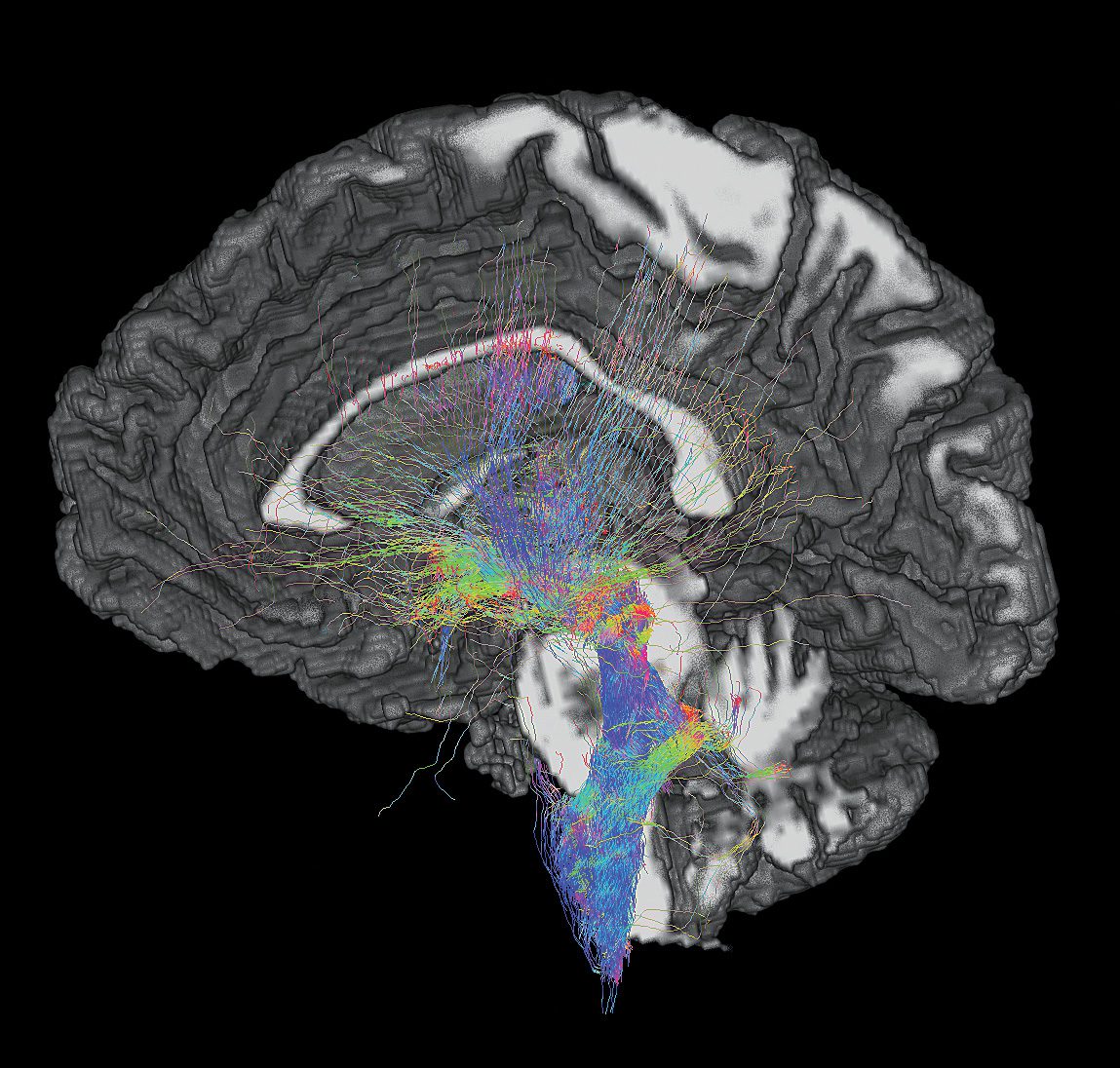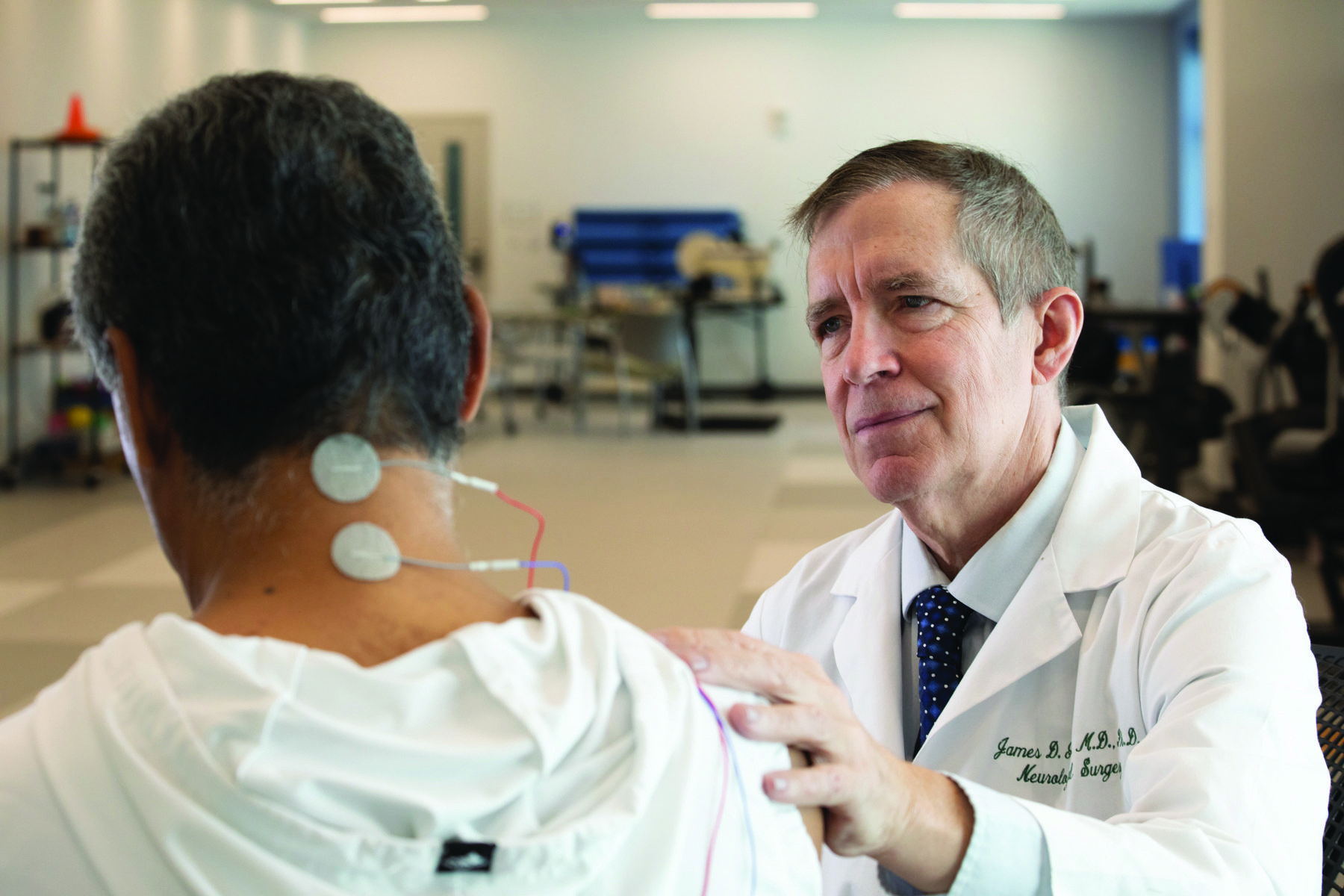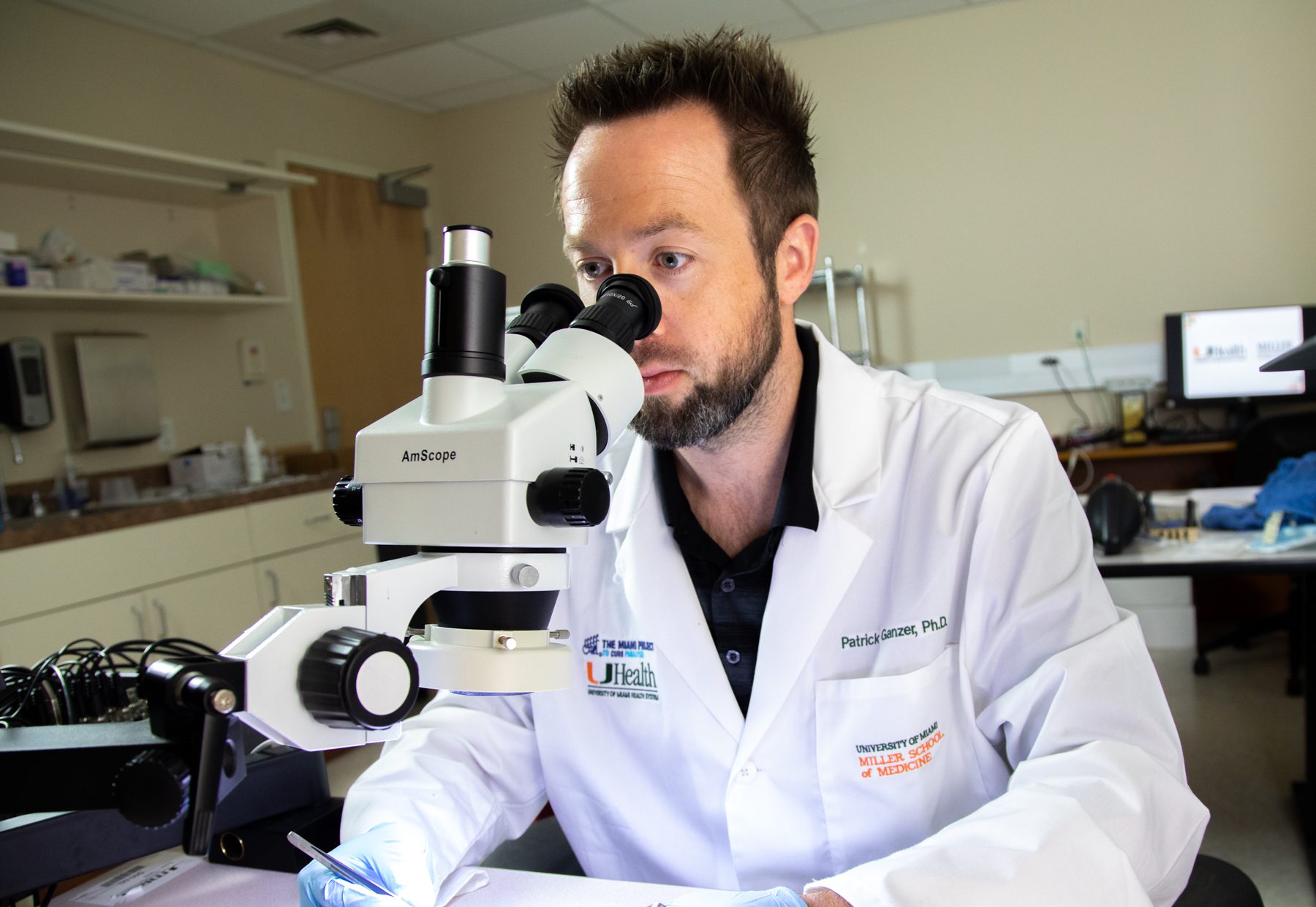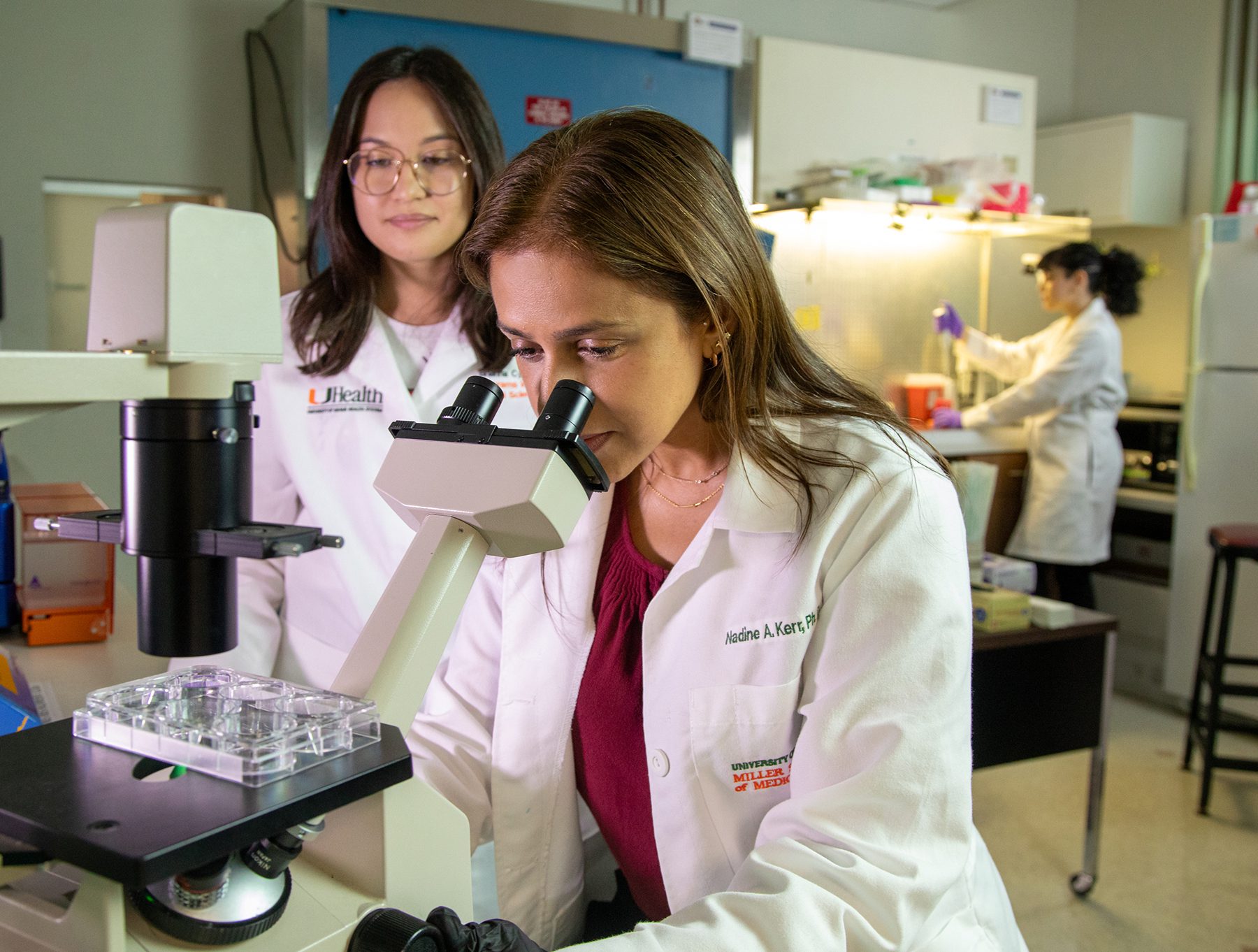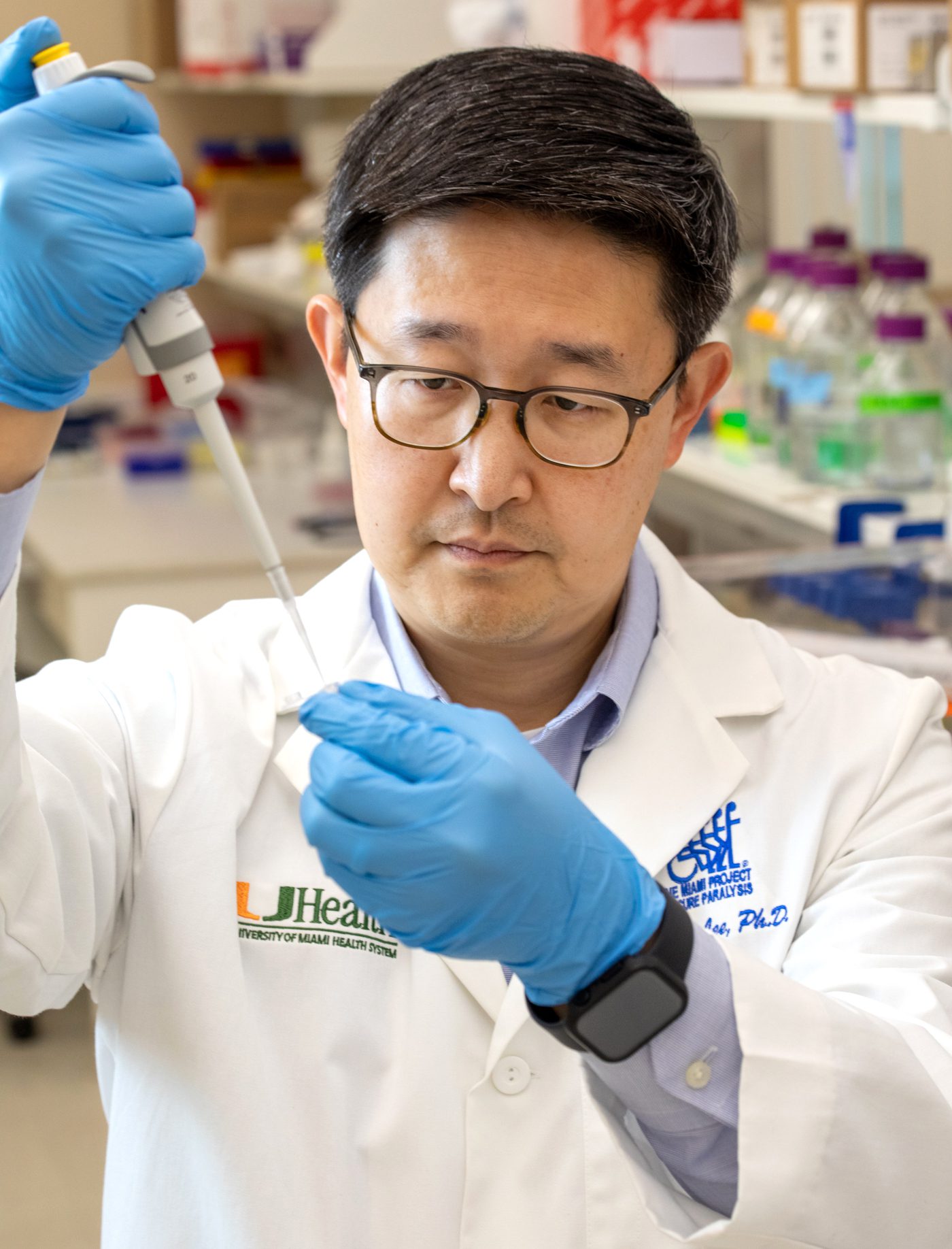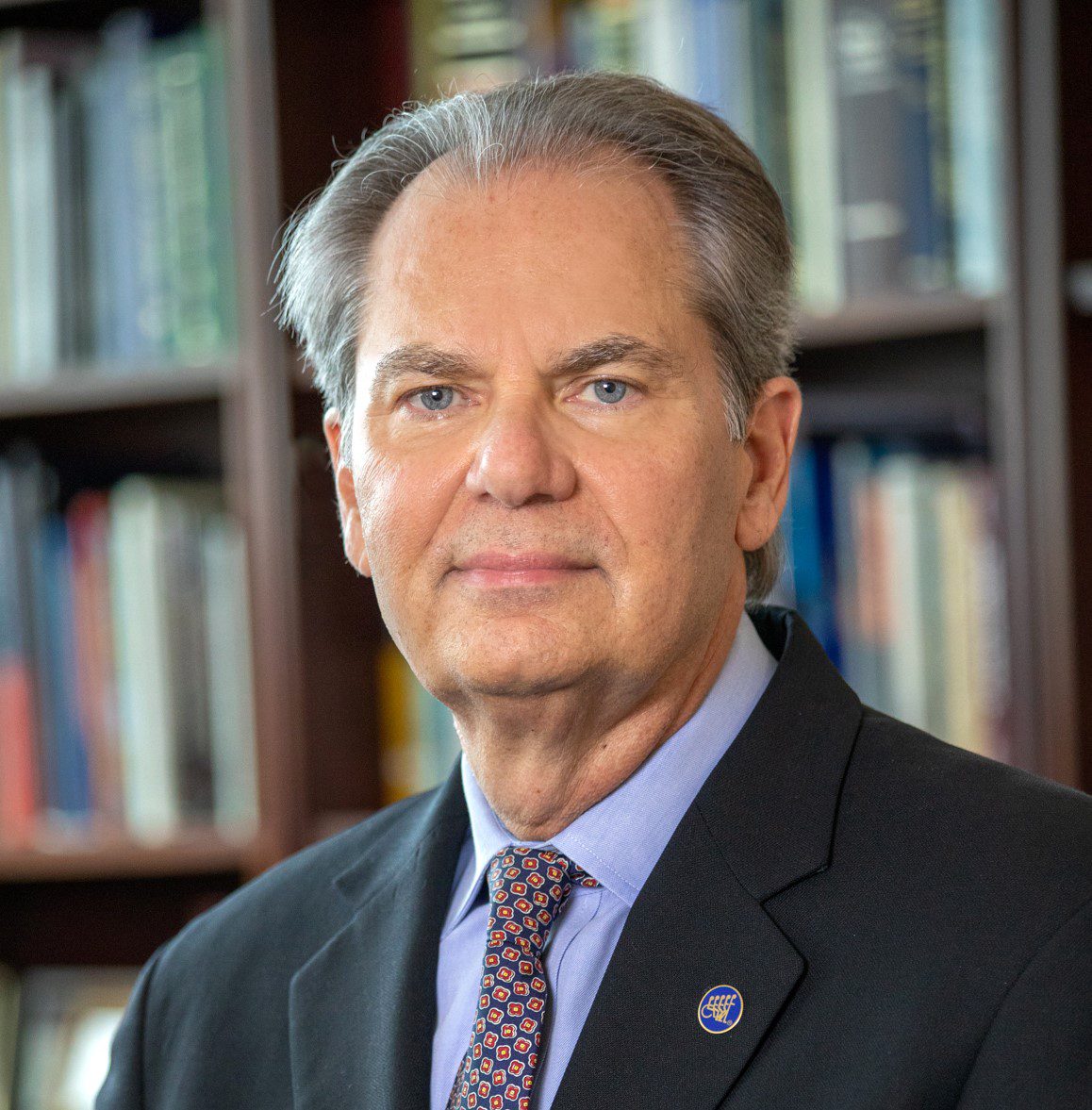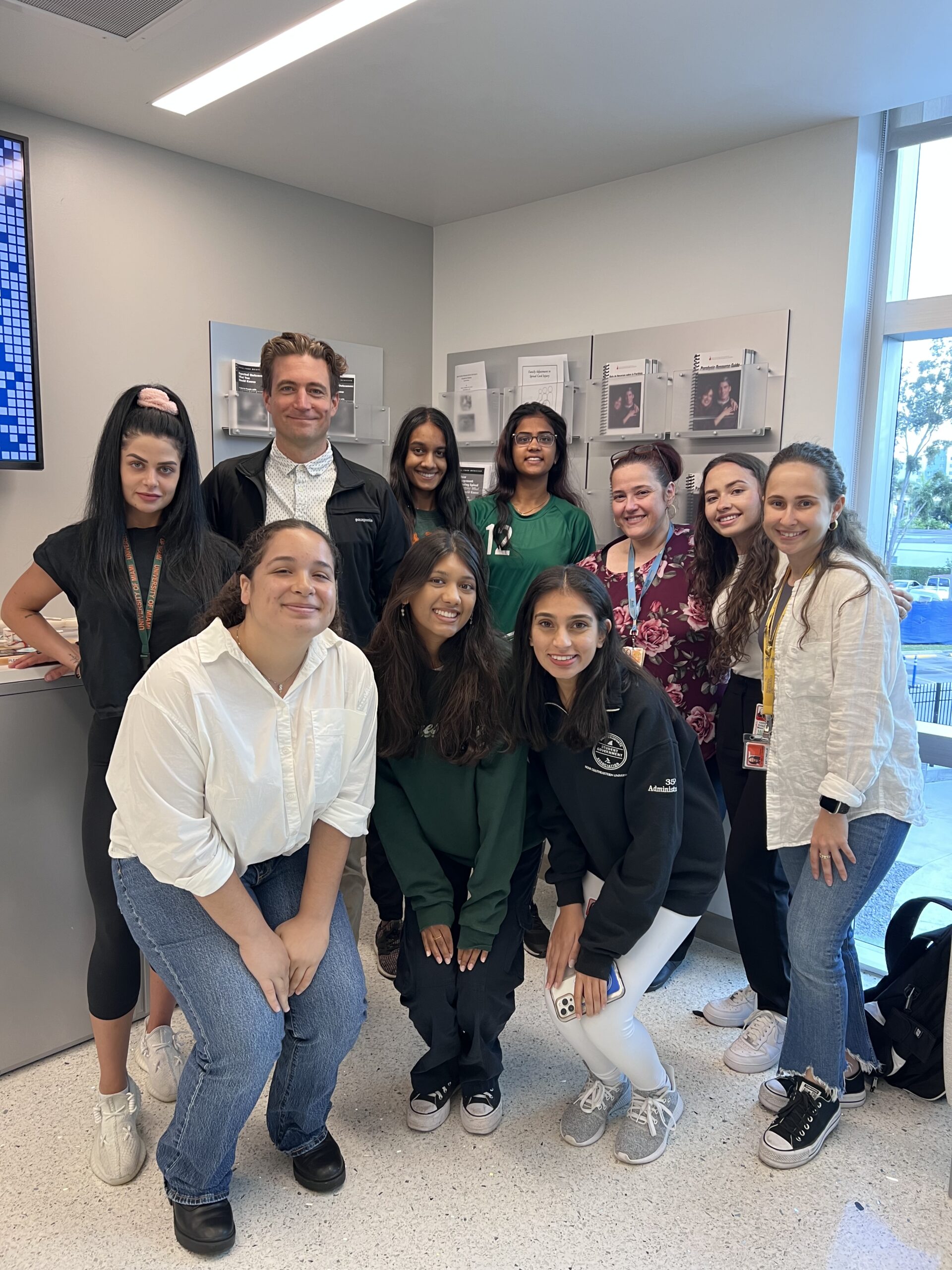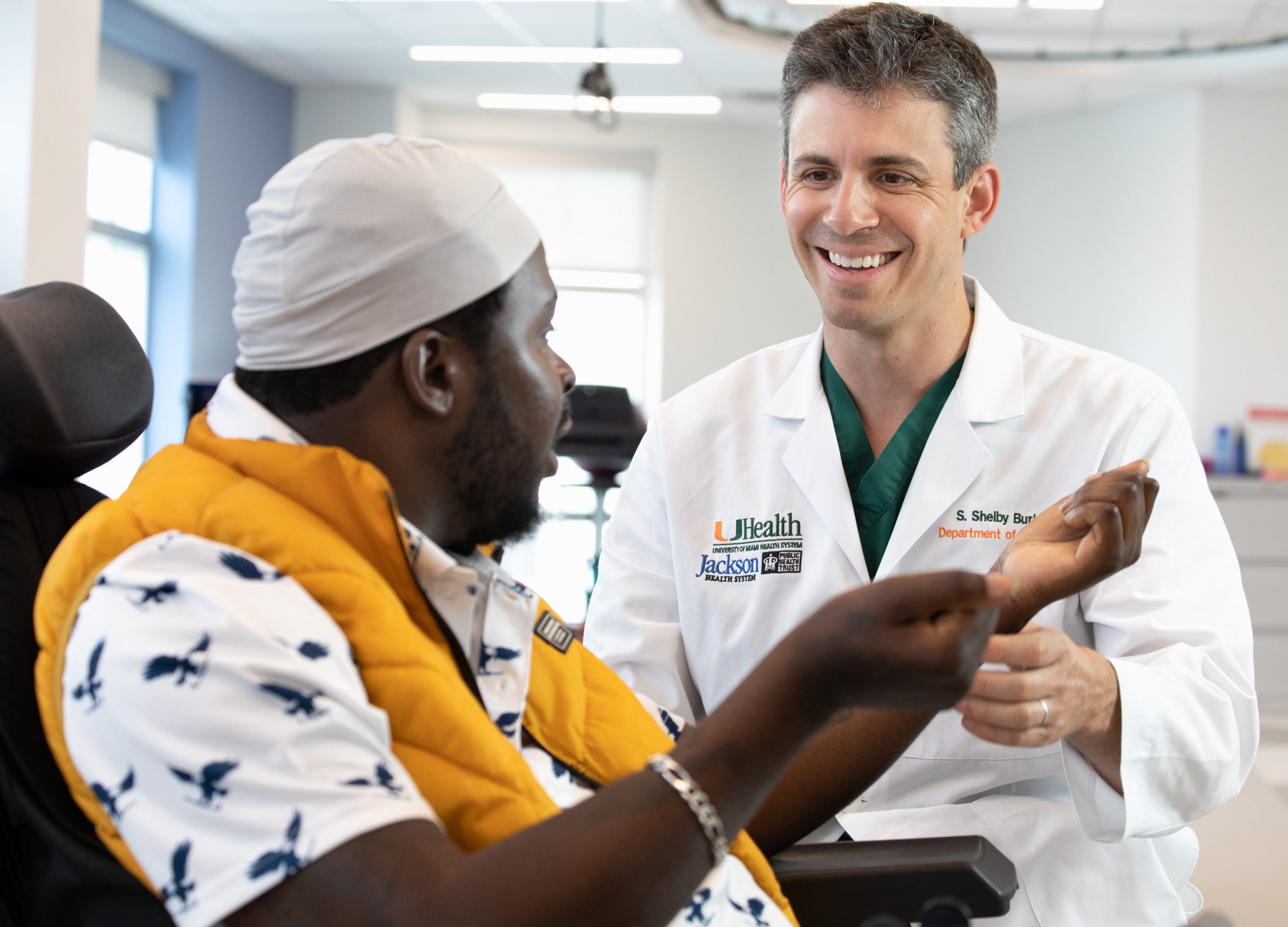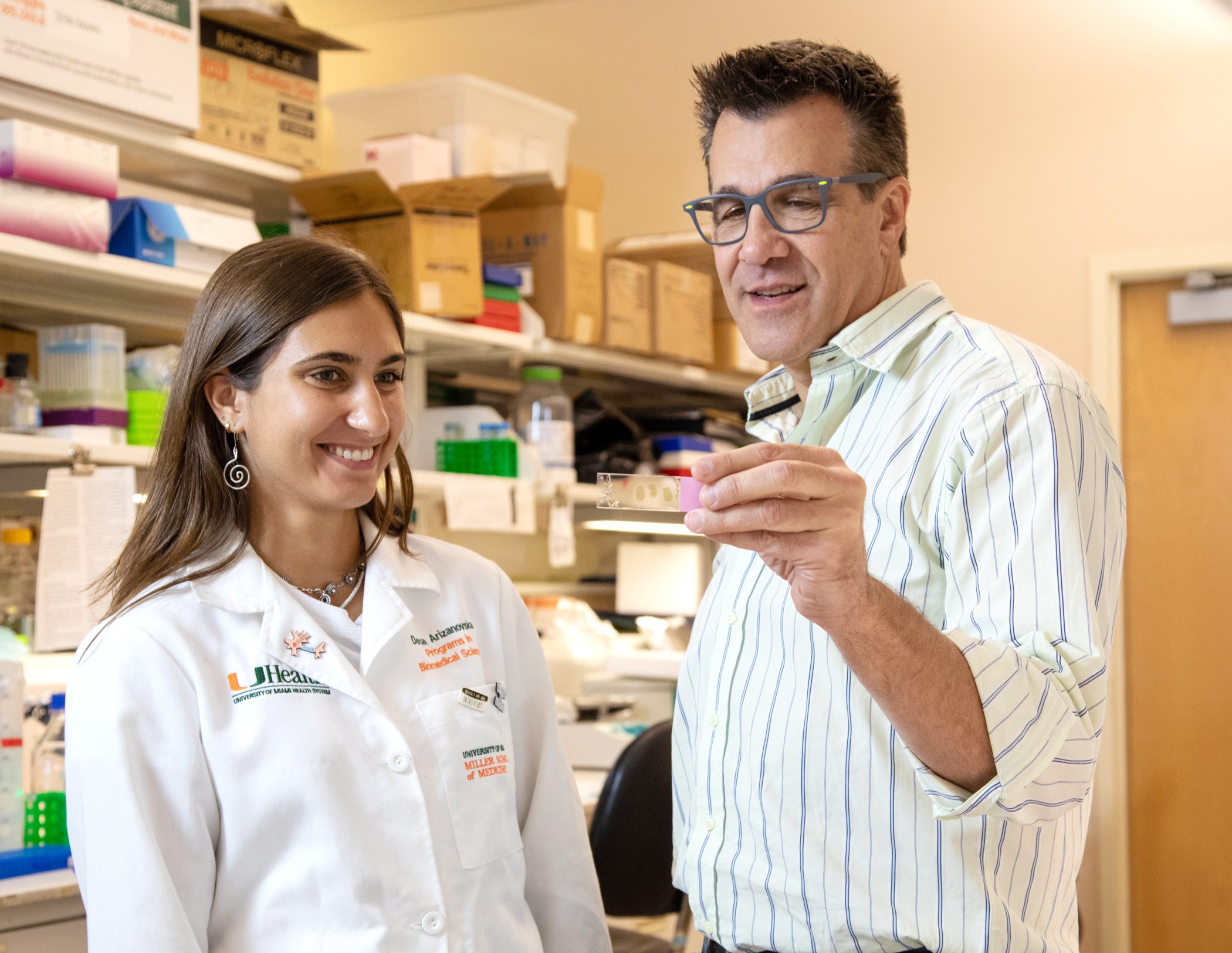(December, 2023) The Miami Project’s Jonathan Jagid, M.D. and Brian Noga, Ph.D., have a proven history of working together on deep brain stimulation (DBS) for movement. Now the robust expertise they built through The Miami Project is poised to impact various neurological conditions including walking after spinal cord injury (SCI). Concurrently the DBS program, routinely…
The Miami Project
(November, 2023) Neuromodulation is a rapidly growing field of research that is exploring the use of electrical stimulation to modulate the activity of the nervous system. This approach has shown promise in the treatment of a variety of conditions, including spinal cord injury (SCI) and stroke. The Miami Project to Cure Paralysis, a designated center…
(October, 2023) – Patrick D. Ganzer, Ph.D., Assistant Professor, Department of Biomedical Engineering and The Miami Project, uses vagal nerve stimulation (VNS) as a means to various ends that are constituted by neuroplasticity. One form of VNS is to enhance the effects of rehabilitation interventions targeting upper extremity function following neurological injury. Although previous preclinical…
(October, 2023) Researchers at the Miami Project to Cure Paralysis are investigating strategies to modify the interactions between the brain and the gut to help patients after stroke as well as Alzheimer’s Disease. It’s not just a gut feeling. For at least 15 years, scientists have recognized there is a strong interaction between the brain…
Dr. Jae Lee, Professor, Department of Neurological Surgery and The Miami Project received outstanding news that his RM1 Interdisciplinary Team Science Grant will be funded by the National Institute of Neurological Disorders and Stroke (NINDS) which is a part of the U.S. National Institutes of Health (NIH). The proposal entitled “Targeting cell-type specific disease phenotypes…
W. Dalton Dietrich, Ph.D., Scientific Director of The Miami Project to Cure Paralysis, and Professor of Neurological Surgery has received the National Institute of Health Javits Neuroscience Investigator Award for demonstrating scientific excellence and productivity in neurological research. The Javits Award recognizes investigators with a distinguished record of substantial contributions to neurological science. “This award…
(June 2023) – The Henry G. Steinbrenner Scholars Program is a 10 week immersive, competitive, funded, research-driven summer internship seeding the future of neuroscientifically informed care and cure efforts. This year, eight scholars entered the program and are already well on their way to producing, and then defending, their projects at the program’s culminating final…
S. Shelby Burks, M.D., Assistant Professor of Clinical Neurosurgery at the Miller School of Medicine Department of Neurological Surgery and The Miami Project to Cure Paralysis, was recently awarded Department of Defense (DOD) funding for a project titled “The Efficacy of Spinal Accessary Nerve Transfer Surgery in the Treatment of Patients with High Tetraplegia.” The…
(March-2023) Daniel J. Liebl, Ph.D., professor at The Miami Project to Cure Paralysis and co-director of the Miller School of Medicine’s Medical Science Training Program (M.D./Ph.D.), was recently awarded a $2.6 million R01 grant from the National Institute of Health (NIH) entitled “Stabilizing the tripartite synaptic complex following TBI”. This award allows for continuation of…
(January, 2023) After growing up in a big family in Long Island, Eric Rosemary knew from an early age that he wanted a family of his own, that he wanted to be a dad. Then came Memorial Day weekend of 2009. While boating with friends off Peanut Island, he fell into shallow water and shattered…

